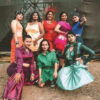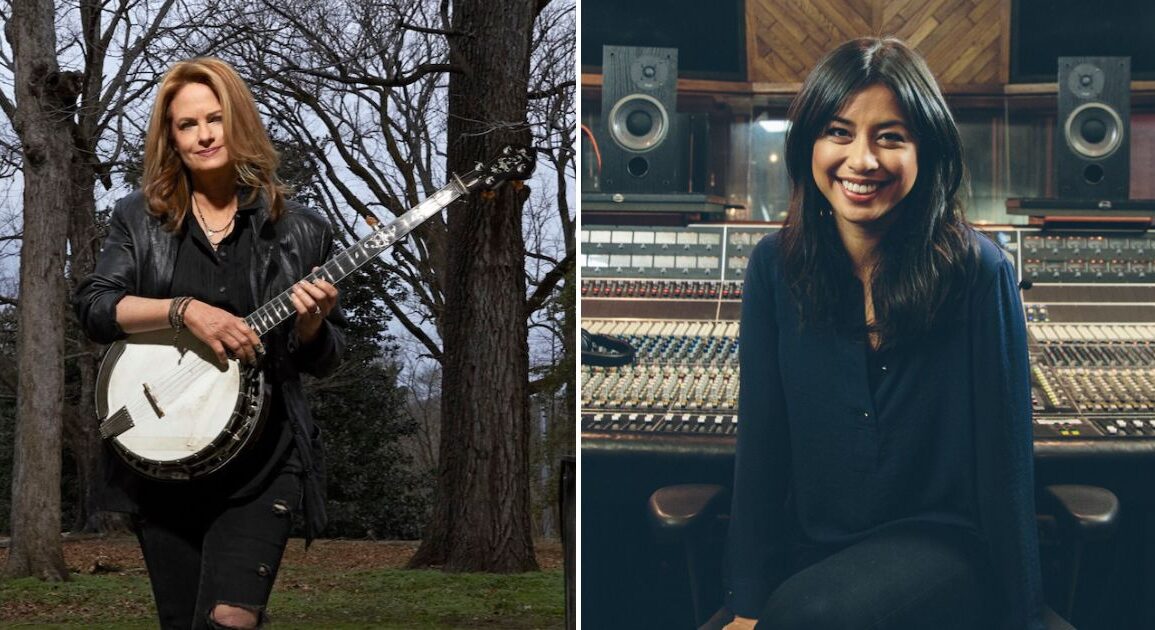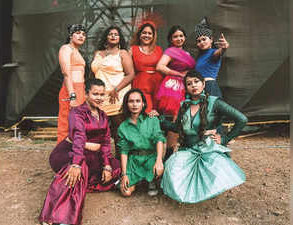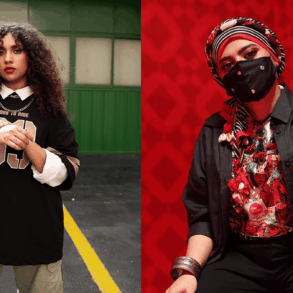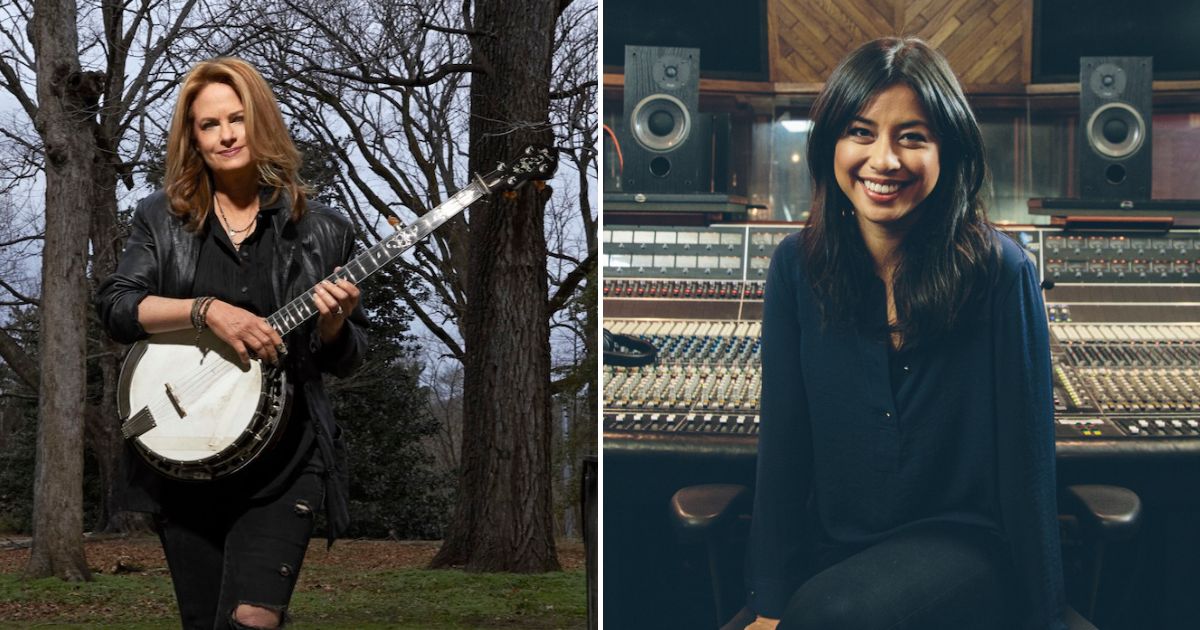
Over the past couple of decades, the music industry has seen more women rising to become leaders in audio engineering and producing. However, even as access, acceptance, and opportunity continue to improve, women are still painfully underrepresented in these career paths, making up just five percent of engineers and producers worldwide. Over the past few weeks, I’ve talked to a handful of these remarkable women, in person at coffee shops, over the phone, and via email, about how they built their careers and the challenges they have faced in a male-dominated industry. These women are trailblazers, often without career models to follow, often the only woman in the room when they work. Their tenacity, talent, and dedication are evident, and I feel honored to share their stories.
As a musician who came up in the the bluegrass scene, the first female producer I ever knew of or worked with – and now that I think of it, the only female producer I’ve worked with who was not hired by me – is the legendary Alison Brown, virtuosic banjo player and co-owner of Compass Records. Since Brown has seen a lot of generational change over her tenure in Nashville, I thought I should start by getting her perspective.
Brown had already solidified her reputation as an instrumentalist, winning IBMA’s Banjo Player of the Year award in 1991 and touring with Alison Krauss, when she decided to start a record label along with her husband, Garry West. “We were talking about how to have a sustainable life in music,” she said, “And it was one of those napkin drawing in a coffee shop moments.”
The two were on tour in Sweden with Michelle Shocked, for whom Brown was the bandleader. “When I look back, I can see how a lot of the opportunities I had were carved out for me by other women. I was about to go to law school when Shocked asked me to be her bandleader and then we went on a world tour. At Compass, I never thought of myself as a producer, Garry was more interested in that role. But when Dale Ann Bradley was going to make an album she asked me to produce it, so I said yes, and that’s how I started producing.”
Since then, Brown has produced seven Grammy-nominated records, as well as winning a Grammy for her own song, “Leaving Cottondale,” off of her 2000 record, Fair Weather.
When asked about her production style, Brown interestingly observes that she may come at it from a traditionally female perspective, by observing and predicting other people’s feelings and needs. “Especially in the studio, you need to make people feel at ease…” she explains. “Ultimately your job is to draw the best out of the musicians. Everyone has that thing they’re afraid of having to do under the microscope, but the goal is to make the musician feel comfortable enough to reach out and hit something new.”
“Sometimes with the older guard guys, I’ll say, ‘OK, lets try to play through the chart’ and they will act like they don’t understand me. ‘What did she say? What does she want to do?’ … Like they want someone to translate it for them, because it’s coming from a woman. It’s annoying, but I know they’re acting that way because they are nervous and they don’t want to look stupid. So when I’m producing, I try to intuit those things about people, and stay focused on the end goal of making a great record.”
Engineer and producer Shani Gandhi has been in Nashville since 2011, and has been been nominated for two Grammys, winning Best Engineered Album (Non-Classical) for her work on Sierra Hull’s 2020 album, 25 Trips, which she engineered, mixed, and co-produced with Hull. Originally from Singapore, Gandhi was raised in Perth, Australia. She moved to the U.S. in 2007 to attend Ithaca College, where she received a BA in music with a concentration in sound recording technology.
Gandhi was drawn to engineering and production because of her love of music and her simultaneous dislike for performing. “As a kid, I didn’t even know that that side of music existed as a career, but once I found the Audio Engineering Society, I immersed myself in it, I was obsessed.”
Gandhi told me about her philosophy for building a community you can learn from and create with. “It’s really important to have a strong community of both mentors and peers,” she explains. “I had people that I was looking up to that were holding me to a very high standard, and then I had friends and colleagues where we were all working really hard and trading favors, and that’s how I built my freelance career. So you need really good people at all levels to make it work. You don’t want to feel like the smallest person in the room all the time, but you also need someone around to tell you, ‘I know you think what you’re doing is really cool, but it’s really not,’” she laughs.
Although she works on every stage of recording and producing, Gandhi’s great love is for mixing. “My approach is to always remember that it’s not my record, it’s the artist’s art when it comes down to it and they’re the ones who have to live with it for the rest of their lives. I do like things to be lush and tall and wide and pristine. I don’t go immediately to that tape or garage sort of sound, but I can do it. If that’s what the artists wants, that’s what the artists gets.”
Also hailing from Australia, producer and engineer Clare Reynolds – AKA Lollies – came to Nashville via LA, where she was signed as a songwriter for hip-hop producer Timbaland’s company. She essentially taught herself production and engineering on the job. “I was in a lot of big studios with big producers over those three years. It was really intense, I was almost always feeling out of my element, but I learned a lot. I would be writing the song, but also watching the others work, asking questions like, ‘Why are you using that mic?’ ‘How are you getting that sound?’ And trying to absorb everything they were doing.”
In Los Angeles, Reynolds tells me, she learned how to enter a room like a man: “I was with so many different, very big personalities that were at the top of their game and their egos were massive. They were just hyped … and if you want to be respected, you can’t go in tentative, you can’t code yourself as female. You have to act how they act, which is to say, you can’t care if other people like you. I would have this attitude like, ‘We don’t need to be friends, but we’re gonna write the best song ever.’”
Reynolds says that she will always love writing songs, but at least for now, production and engineering have taken a hold on her. “I will be forever learning,” she says, “But I do think that my experience with writing helps me approach the audio side from a very musical and song-based perspective.”
Engineer and producer Diana Walsh echoed Reynold’s sentiment about the typical energy in a recording studio. “With women being so critically underrepresented in these technical roles, it can sometimes take a minute for the gender biases in the room to dissipate,” she told me. “My focus is always on doing great work, and treating everyone in the room with the same respect I expect in return.”
Growing up in Houston, Texas, Walsh played guitar, but was always more interested in how she could record her guitar than how she could perform with it. Her mom bought her very first Shure SM57 microphone, which still gets used today in her sessions.
Walsh recorded her own music at home before heading to Belmont University to study music business, with an emphasis on production. While in school she started freelance recording for friends and classmates and after graduating, she began working at the historic RCA Studio B, where she is now the Studio Manager, as well as maintaining a busy freelance engineering schedule.
Her engineering and production credits include Matchbox 20, Amanda Shires, JD McPherson, and Sister Sadie. Walsh believes that representation is key for getting more women into the studio: “Working at RCA B, I have the opportunity to talk to a lot of school groups. After our sessions, I often speak with the students and ask about their goals for their future in music. Through these conversations, I’ve been thrilled to hear that more and more young women are taking an interest in engineering/producing.”
Throughout my conversations with each of these women, one point they all emphasized was the importance of staying focused on making great work in the face of difficult environments. “Nobody can argue with good work,” they each told me in their own way. And as we continue to see beautiful records being made by women, I have to agree.
Photo Credit: Alison Brown by Russ Harrington; Shani Gandhi by Joshua Black Wilkins.
This post was originally published on this site be sure to check out more of their content.


